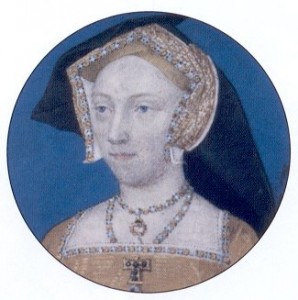 The day after your second wife’s death is obviously the right time to become betrothed to your new woman, don’t you think? OK, so wife number 2 had just been executed for high treason for being unfaithful to her husband and plotting to kill him, but I don’t for a moment believe that Henry VIII thought she was guilty.
The day after your second wife’s death is obviously the right time to become betrothed to your new woman, don’t you think? OK, so wife number 2 had just been executed for high treason for being unfaithful to her husband and plotting to kill him, but I don’t for a moment believe that Henry VIII thought she was guilty.
But, that’s just my view!
Whatever your view on Henry VIII’s part in the events of May 1536, it still doesn’t seem very appropriate to become betrothed to a new woman that fast. I don’t think Henry VIII cared what anyone thought by this point, though. Henry was ready to move on to a woman he hoped would give him a living son, and that woman was Jane Seymour.